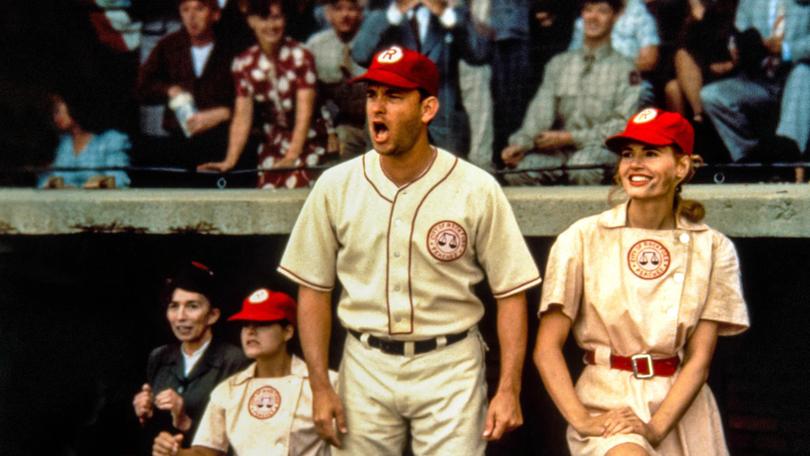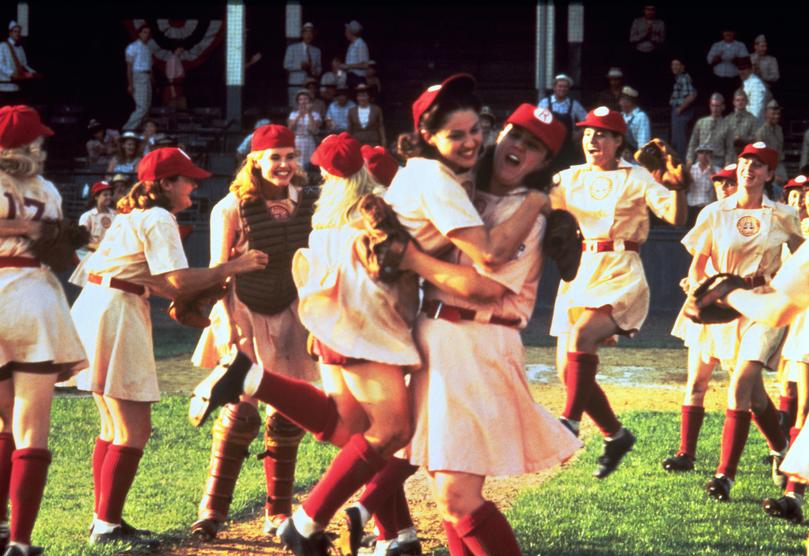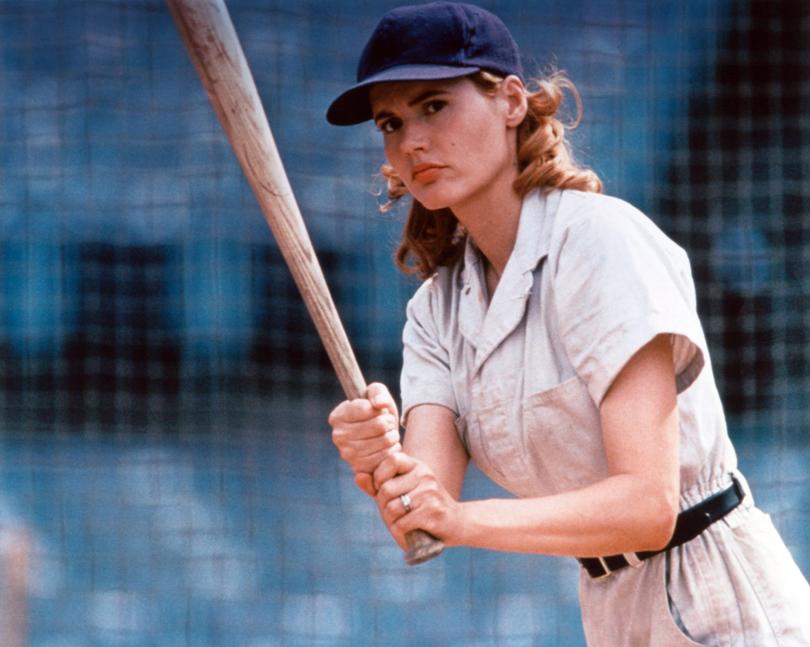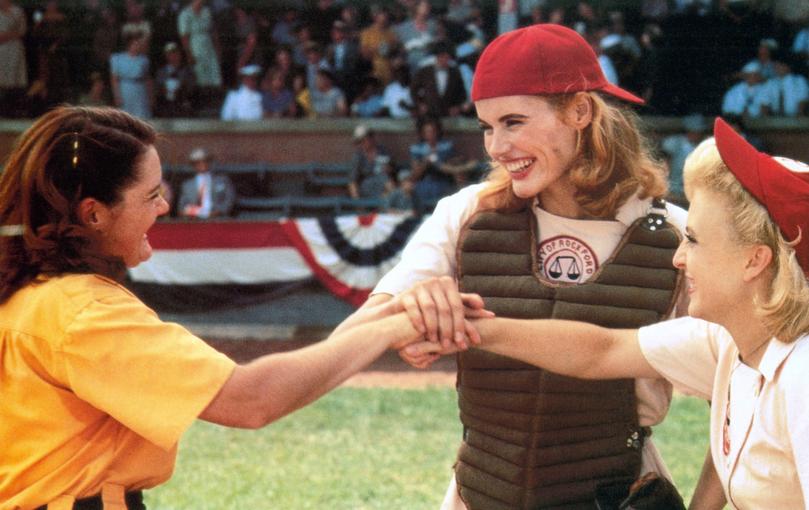WENLEI MA: Why A League of Their Own is a perfect movie to watch over and over again
WENLEI MA: There are movies that we rewatch every year, and A League of Their Own should be one of yours. It still holds up so well.

When I was a kid, I was a huge Madonna fan. I still know the words to every song off the Immaculate Collection.
So, I could say that I was preternaturally gifted at knowing what contemporary movies were going to endure thirty-two years later, but really, I picked up A League of Their Own from the video store because Madonna was in it.
The Penny Marshall movie starring Geena Davis, Tom Hanks, Rosie O’Donnell and, of course, Madonna is a perfect film.
Sign up to The Nightly's newsletters.
Get the first look at the digital newspaper, curated daily stories and breaking headlines delivered to your inbox.
By continuing you agree to our Terms and Privacy Policy.It has heart, laughs and drama. It has women working as a collective, a sisterly rivalry, and lots of on-field action that even I, an avowed non-sports fan, could get into. To this day, I can still roughly follow a baseball game if I was ever inclined, not that I ever am.
If you’ve never seen it (really?!), the film is a fictionalised story of the very real All-American Girls Professional Baseball League, which was cooked up during World War II when male baseball stars were off fighting in the Pacific.
The owners whose fields were sitting empty decided to lure patrons back to their stands by giving them something else to watch: women playing baseball.

The film is centred on two sisters, Dottie and Kit, dairy farm workers from Oregon who play for a community team. They’re scouted along with scores of women from all over the US and form the four teams that would make up the league.
At first, the teams struggle to attract an audience and those that did come, mocked them for being girls. But soon it was obvious these women meant business and they were proper ball players.
Dottie is the star of the team, which puts Kit’s nose out of joint, having always played the overlooked little sister to her admired older sibling. Kit’s resentment bubbles over and the sisters find themselves on opposite sides of the pitch.
The rest of the team include women like Marla, a not-conventionally-attractive player with an incredible batting record, the sweet Betty Spaghetti, Evelyn with her devil son, beauty queen Ellen Sue and friends Mae and Doris, the latter pair played by Madonna and O’Donnell.
Mae was a sexually liberated dancer, but she wasn’t just that. During a scene in which the promoter and general manager (David Strathairn) relays the leagues may be shut down because of its lack of popularity, Mae exposes her fears at having to go back to a life of taxi dancing where for “10 cents some slob can sweat gin all over me”.
It was a large ensemble but every one of the featured players felt real, that they had histories and they had inner lives.

The film’s male lead, former baseball player turned coach Jimmy Dugan (Tom Hanks), was always only ever a supporting character. While the character had a proper arc (from the bellowing “There’s no crying in baseball!” to a man with greater patience, understanding and valuing both his team and himself), the women were always centre stage.
Core to why A League of Their Own is one of those movies you could watch yearly and still be resonant and relevant is that it embraces the players’ talent. They don’t play well “for a girl”. They just play well.
On the bus during one of the team’s away games, Doris says, “All the other boys made me feel I was wrong, like I was some sort of weird girl or strange girl or not even a girl just because I could play. I believed them too but not anymore, you know.
“I mean, look, there’s a lot of us and I think we’re all alright.”
That’s a line of dialogue for a specific moment but there’s a universality to its sentiment. It could be applied to anyone who has felt like an outsider, only to find their tribe. That sense of belonging is so beautifully captured in that moment and throughout the film.
They argue and bicker but they also play together, both on and off the field.

A 2022 TV remake starring Abi Jacobson and D’Arcy Carden retained the spirit of that camaraderie but shifted its focus to tell the buried LGBTQI stories of the league. It was a more inclusive version of the story, but takes nothing away from the 1992 original. Each project reflects the time in which it was made.
A League of Their Own is bookended by an older Dottie reuniting with her former teammates at the opening of a museum exhibition dedicated to the league. The vibe is different to the rest of the film but it always yanks at those heartstrings.
Here they were, decades later, these women who were part of something together being acknowledged for their contribution, their gifts and their hard work.
They sing their song, “Batter up, hear that call. The time has come, for one and all, to play ball”.
And you start to cry.

